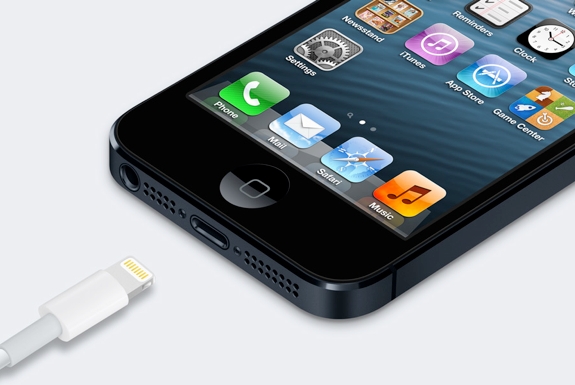UPDATE FIXES VERIZON IPHONE 5 DATA GLITCH; CUSTOMERS WON'T BE CHARGED FOR OVERAGES
Verizon iPhone 5 customers may have noticed an issue wherein their phones gobbled up extra cellular data when they were theoretically connected to Wi-Fi networks. Those customers now have two bits of good news: There’s a special software update that fixes the problem, and they won’t be responsible for unexpected charges related to unintended network overages related to the issue that spurred the carrier update in the first place.
10 HOT IT SKILLS FOR 2013
The number of companies planning to hire tech professionals continues to grow, with 33% of the 334 IT executives who responded to Computerworld's 2013 Forecast survey saying they plan to increase head count in the next 12 months..
APPLE WARNS ICLOUD USERS OF LOOMING STORAGE LOSS
Apple on Monday began reminding some iCloud users that they will soon lose the 20GB of free storage they'd received when they migrated from MobileMe.
Nook Video set for fall premier
Barnes and Noble Tuesday announced that Nook Video will premiere this fall in the U.S. and UK. The service will offer access to movies and TV shows for streaming and download.
Eight simple steps to make the upgrade to iPhone 5 easier
A little planning can save time - and voice messages - when you upgrade to the new iPhone 5
Monday, October 29, 2012
Yahoo to ignore Microsoft's 'Do Not Track' signal from IE10
Friday, October 26, 2012
Tumblr takes a tumble, stumbles back to life
Why do outages freak some users?
Thursday, October 25, 2012
Google, Microsoft and Yahoo fix serious email weakness
Use of weak DKIM signing keys could allow spoofed email messages to look legitimate, US-CERT warned
Google, Microsoft and Yahoo have remedied a cryptographic weakness in their email systems that could allow an attacker to create a spoofed message that passes a mathematical security verification.
The weakness affects DKIM, or DomainKeys Identified Mail, a security system used by major email senders. DKIM wraps a cryptographic signature around an email that verifies the domain name through which the message was sent, which helps more easily filter out spoofed messages from legitimate ones.
The problem lies with signing keys that are less than 1,024 bits, which can be factored due to increasing computer power. US-CERT said in an advisoryissued Wednesday that signing keys less than 1,024 bits are weak, and that keys up to RSA-768 bits have been factored.
The issue came to light after Florida-based mathematician Zachary Harris was sent an email from a Google recruiter that used only a 512-bit key, according to a report published Wednesday by Wired magazine.
Thinking it might be some clever test by Google, he factored the key, then used it to send a spoofed message from Sergey Brin to Larry Page, Google's founders.
It wasn't a test but in fact a serious problem, one in which emails that could be bogus would be trusted. According to the DKIM standard, email messages that have keys shorter that 1,024 bits are not necessarily rejected.
Harris found the problem wasn't limited to Google, but also Microsoft and Yahoo, all of whom appeared to have fixed the issue as of two days ago, according to US-CERT. Harris told Wired he found either 512-bit or 768-bit keys in use at PayPal, Yahoo, Amazon, eBay, Apple, Dell, LinkedIn, Twitter, SBCGlobal, US Bank, HP, Match.com and HSBC.
Weak signing keys are a boon for cybercriminals. They selectively target people with emails containing malicious links in an attempt to exploit a computer's software and install malware, a style of attack known as spear phishing. If an email contains the correct DKIM signature, it's more likely to end up in a recipient's inbox.
US-CERT also warned of another problem. The DKIM specification allows a sender to flag that it is testing DKIM in messages. Some recipients will "accept DKIM messages in testing mode when the messages should be treated as if they were not DKIM signed," US-CERT said.
Monday, October 22, 2012
Popular Android apps leak personal data, study finds
Saturday, September 24, 2011
Yahoo blocks emails about Wall Street protest
ThinkProgress.org has perhaps the best coverage, including a YouTube video of users trying to send emails that mention the "OccupyWallSt.org" web site. That seemed to be the magic phrase to get your email blocked.
Yahoo spokespeople claim it was a glitch, a mistake, unintentional, and they don't know how their spam filters became so sensitive. Via Twitter, Yahoo announced the blockage was now fixed, but "there may be residual delays." There will certainly be some residual questions. But remember, censorship requires a government entity squelching speech, not an email provider.
Source: ITWorld.com








.jpg)


